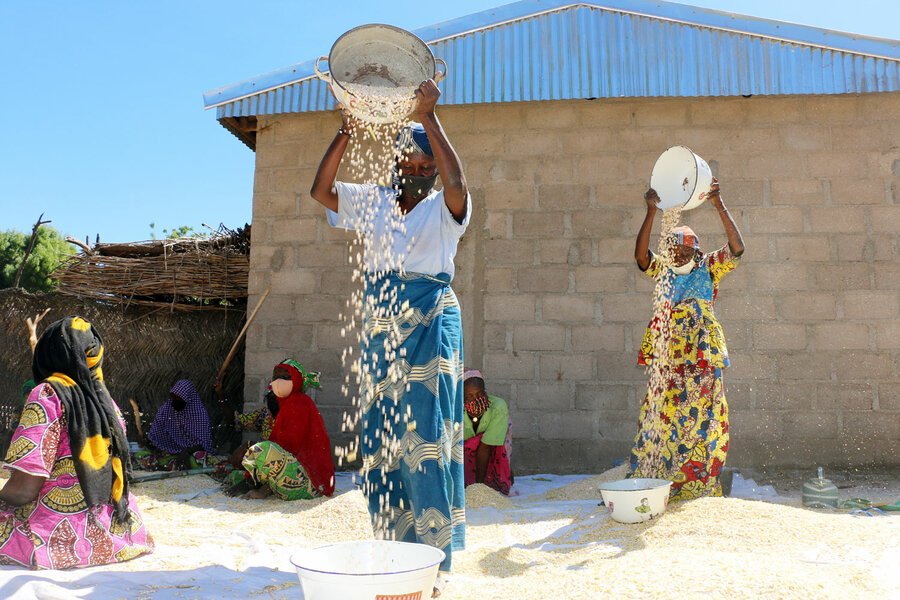Though the mother of four doesn’t own land, she is part of Klakil Farmers’ Cooperative, a 47-member group, that feeds the town of Mayo-Moskota. In 2021, cooperative received support from the government and the World Food Programme (WFP) in the form of fertilisers, financial aid and machines to transform pepper production. Thanks to the support they now harvest over 100 kg of pepper from their seven-hectare farm.
Its members include longtime MayoMoskota residents but also displaced people like Marie, who fled the Boko Haram insurgency that has gripped the northern region of Cameroon.
“The financial and equipment support has really helped us not only produce better but also processing and transforming our harvest into liquid form and bottling,” says Marie.
The programme supports cooperatives in 10 Far North communities, helping members to manage their finances, increase their harvests, get through the lean seasons, and earn a profit in the markets.

